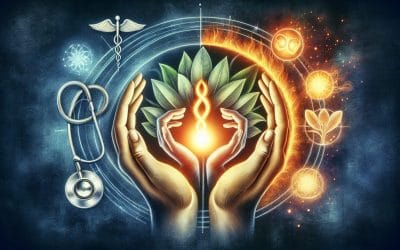Chronic pain is one of the most persistent and life-altering health challenges affecting people today. Whether it stems from a diagnosed condition or has developed without a clear cause, chronic pain often defies easy answers.
Natural Relief with a Personalized Approach
Pain Management in Redmond, WA
Take the First Step Toward Lasting Relief
Located near Microsoft campus in Redmond, WA
Address the Root of Your Discomfort
Chronic or acute pain can disrupt every aspect of your life—from sleep and mobility to mood and productivity. At Eastside Ideal Health, we take a comprehensive, drug-free approach to pain management. Our goal is simple: reduce your pain, restore your function, and help you regain control of your health naturally.
Why Choose Eastside Ideal Health for Pain Relief?
- Non-invasive, evidence-informed care—no needles or surgery
- Rapid results for common conditions like back, shoulder, and knee pain
- Personalized treatment plans focused on long-term healing
- Integrated care team combining chiropractic, mobility training, and soft tissue therapy
- Convenient Redmond location serving the greater Eastside
Common Conditions We Treat
- Lower back pain and sciatica
- Neck pain and tension headaches
- Shoulder impingement and rotator cuff issues
- Knee pain and joint instability
- Hip pain and mobility loss
- Soft tissue injuries and repetitive strain
- Postural dysfunction and ergonomic stress
Our Drug-Free Approach to Pain Relief
Chiropractic Adjustments
We use targeted spinal and joint adjustments to reduce nerve interference, improve alignment, and restore natural movement patterns—without cracking or discomfort.
Soft Tissue Therapy
Hands-on techniques like myofascial release and trigger point therapy help release tension, reduce inflammation, and improve circulation in injured or overworked muscles.
Corrective Exercise & Mobility Work
We address the underlying dysfunctions that lead to pain through guided exercises, movement re-education, and muscle activation strategies customized to your needs.
Lifestyle & Ergonomic Guidance
We help you make small daily changes—whether that’s improving your workstation setup, sleep posture, or recovery habits—to prevent flare-ups and promote healing.
Meet Your Pain Management Team
Our providers are trained in advanced chiropractic techniques, movement assessment, and soft tissue care. We believe collaboration is key—our team works together to ensure every aspect of your care supports your recovery goals.
What to Expect During Your Visit
Your first appointment includes a full-body movement and functional assessment, discussion of your pain history, and hands-on evaluation. We then design a plan tailored to your needs—often blending multiple therapies for the most effective results.
Frequently Asked Questions
- How many sessions will I need?
- It depends on the type, severity, and cause of your pain. Some patients feel relief after 1–2 visits, while others benefit from a structured plan over several weeks.
- Is this covered by insurance?
- We are out-of-network providers, but many patients use HSA/FSA accounts. We can provide receipts for reimbursement if applicable.
- Can I still come if I’m already seeing another doctor?
- Absolutely. We often collaborate with primary care doctors, physical therapists, and other specialists to ensure continuity of care.
Take the First Step Toward Relief
You don’t have to live in pain. Whether your discomfort is recent or something you’ve been managing for years, our team can help you move forward with confidence. Book your initial pain management consult today and get started on a path toward lasting relief.
Book Your Pain Relief Consultation
Related Services:
“
Testimonials
Personalized, Non-Drug Pain Relief
We use natural, hands-on techniques to manage pain at the source—without relying on medications or invasive procedures.
Target the Cause, Not Just the Symptoms
Our approach focuses on correcting dysfunction in the muscles, joints, and nervous system to provide long-term relief.
Live Better with Less Pain
Whether you're recovering from injury or managing chronic discomfort, we help you move, work, and live more comfortably every day.
Learn More About Pain Management
Pain Management Resources
Contact Us For An Appointment
Get Relief
Clinic Hours
Monday-Friday: 730am - 6pm
Saturday: 9am - 12pm
Sunday: Closed

